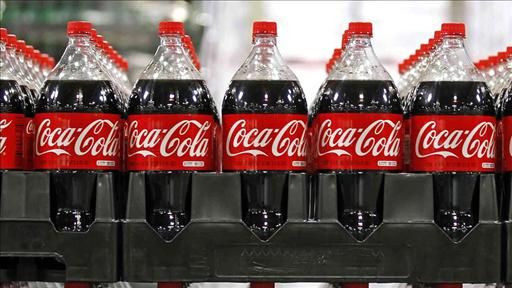Coca-Cola Company (KO) Responds To ‘Greenwashing’ Charge: Criticism Of PlantBottle Is ‘Half-Empty’

The Coca-Cola Co. (NYSE:KO) is defending the environmental benefits of its PlantBottle packaging after a new report substantiated claims by an environmental group that the beverage giant “greenwashed” its marketing.
Scott Vitters, general manager of the beverage giant’s PlantBottle packaging program, said critics are taking advantage of the report as a way to “tear down” Coke’s efforts to lessen its impact on the environment. “It’s unfortunate that, within this space, there are often more who want to view things as half-empty instead of half-full,” he said in a phone interview.
As the International Business Times reported this week, Henrik Saugmandsgaard Øe, the Danish consumer ombudsman, released a report criticizing Coke’s marketing of PlantBottle, which is made partially from plant-based material. The report was translated into English on Monday and sent to the IBTimes by Øe’s office. In it, he said the PlantBottle marketing didn't represent a “true, balanced and loyal overall impression” of the product. Chief among his complaints were Coke’s assertions that PlantBottle is “environmentally friendly” and has a “reduced carbon footprint,” claims Øe said the company didn't back up with documentation.
Vitters said PlantBottle’s benefits -- including a reduced carbon footprint -- have been documented through research carried out by third parties. He said the PlantBottle program was launched with the understanding that its environmental benefits would need to be independently verified, a way of both ensuring trust and maintaining transparency.
“We realized that [information] couldn’t just be coming from Coca-Cola,” Vitters said. “We knew that we would also have to have third-party partners working with us to ensure confidence and viability in the kind of work that we’re doing.”
Those third parties include the Imperial College of London, where biologist Richard Murphy headed up an initial life-cycle analysis of PlantBottle. His team confirmed that the packaging reduced CO2 impact by 12-19 percent, according to the college. Ramani Narayan, a professor in Michigan State University’s department of chemical engineering and materials science, has also touted the product’s benefits.
In terms of prominently displaying this research and making it easily accessible to Coke’s customers, Vitters said the company is still working to strike a balance that keeps customers well-informed without bogging them down with esoteric scientific information that few people understand. “We’re still learning in terms of how you take science and technology issues and put it into a format that people can easily digest,” he said.
The Coca-Cola corporate website does include extensive information about PlantBottle, including information on awards and a section devoted to frequently asked questions, or FAQs.
Vitters also stressed that the ombudsman’s report was aimed specifically at ad materials for PlantBottle’s marketing during the Copenhagen Climate Change Summit in 2009. It was at that time the Danish environmental group Forests of the World filed a complaint with Øe’s office, accusing Coca-Cola of “greenwashing.”
“The positioning that was being discussed was for the climate conference,” Vitters said. “That’s not the kind of positioning that we use in other markets around the world, including markets there in Europe.”
Critics said Coke’s use of the word “Plant,” in addition to excessive green effects and a recycle-type logo, overstate PlantBottle’s environmental benefits, playing upon consumers’ concern for the environment for the sake of profit. Vitters countered that the product is the result of extensive work and innovation, which he said can’t happen without cooperation from people who care most about the planet.
“We don’t view the environmental community as outside of our engagement,” he said. “We’re hand in hand.”
Got a news tip? Send me an email. Follow me on Twitter: @christopherzara
© Copyright IBTimes 2025. All rights reserved.






















